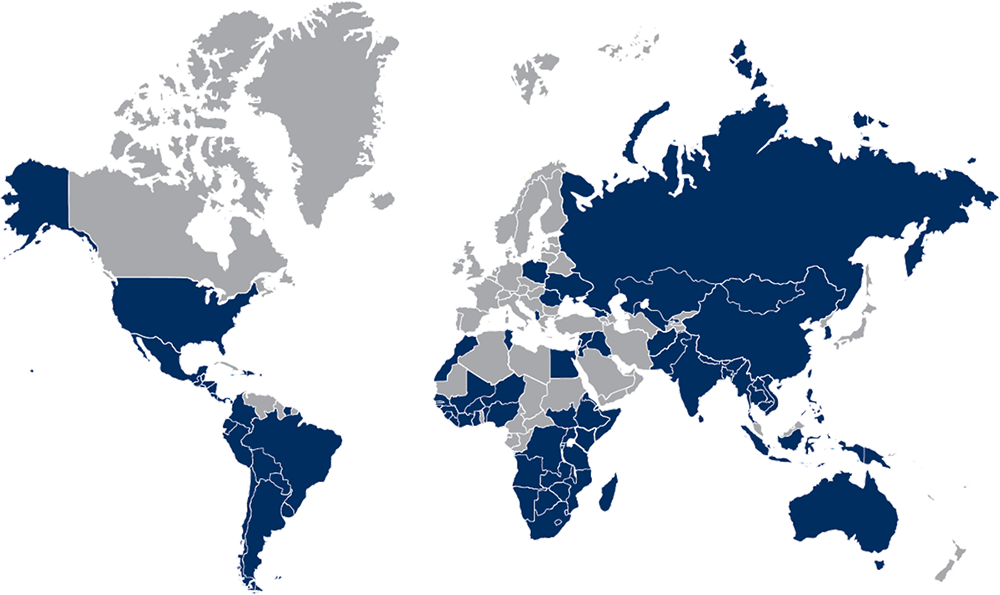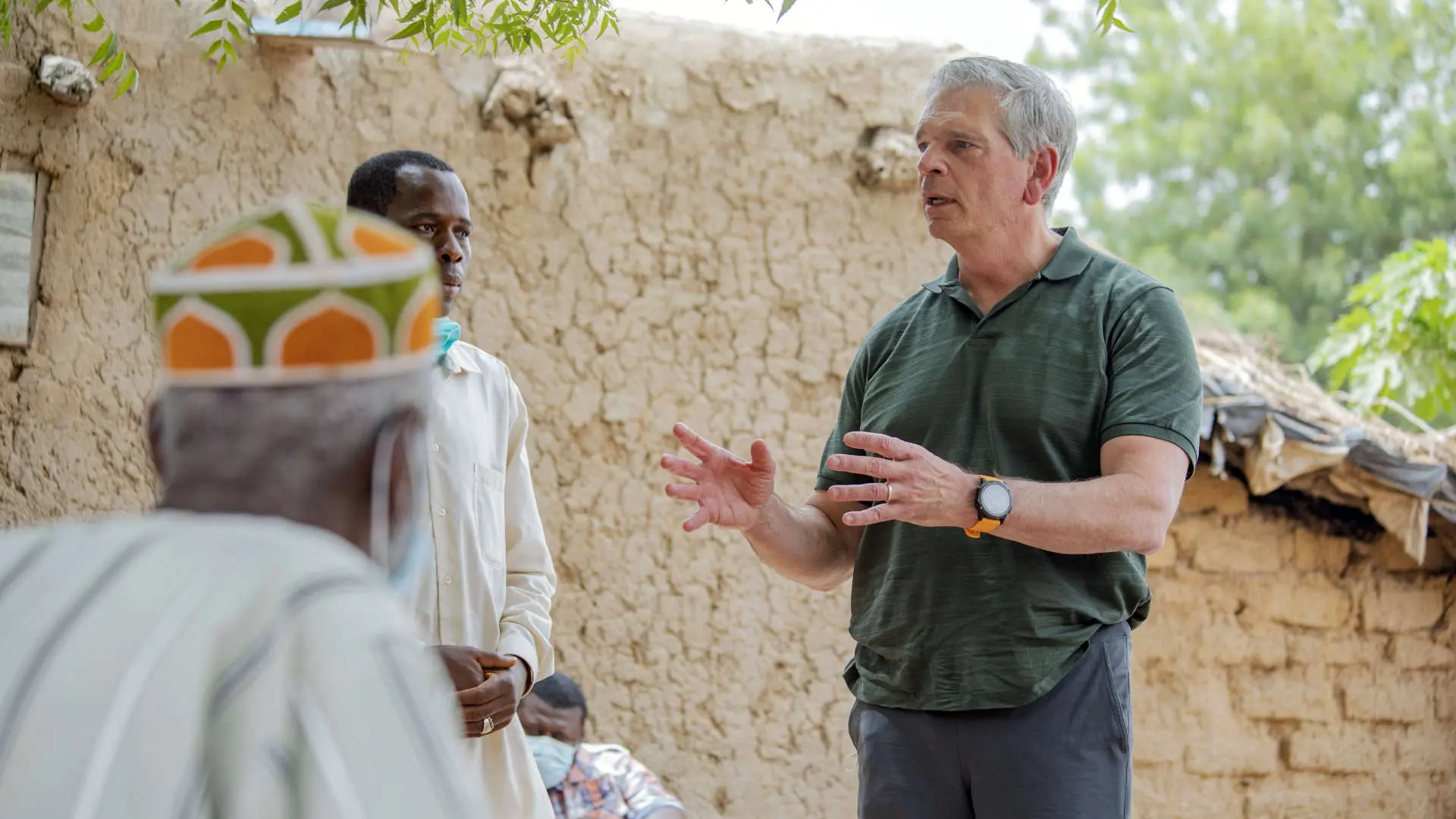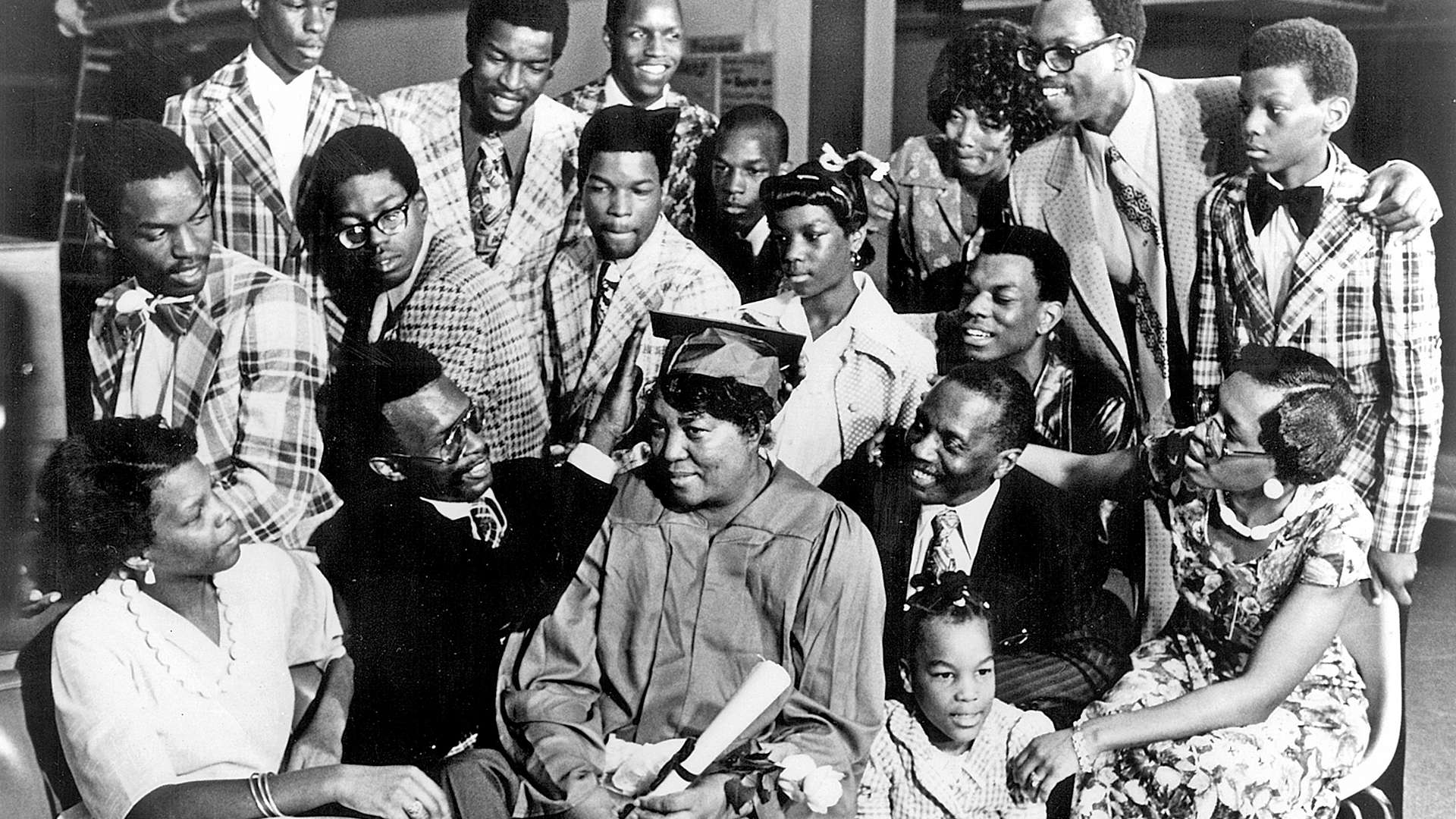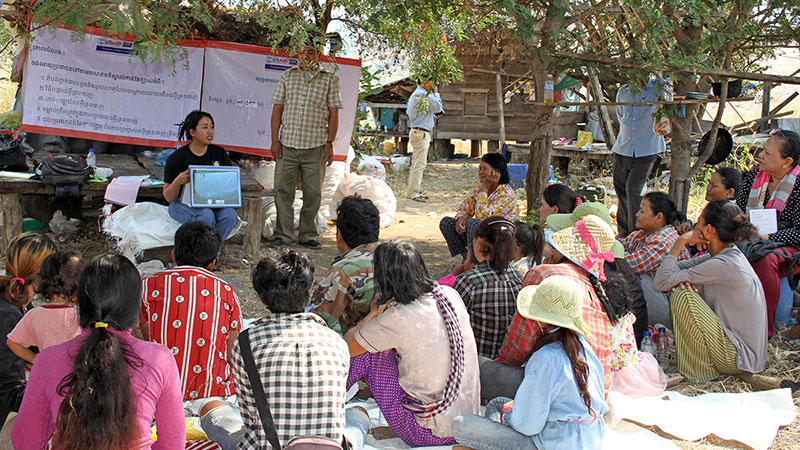The Cambodia Malaria Elimination Project (CMEP) team crosses a stream to reach malaria patients through forest paths in Phnom Kravanh OD. Photo credit: Um Chandara
Our Global Reach
Having worked in over 90 countries, URC has developed deep relationships around the globe with partners on the ground to achieve sustainable progress in health outcomes. We have implemented hundreds of projects, including complex, multi-country projects that have made a lasting impact on global health priorities. And we have carried out national and regional implementation science research to better inform decision making for improved health.
Having such a wide reach has allowed URC to develop, lead, and engage in global networks and communities of practice for continuous learning and knowledge exchange and collaboration. Working together to tackle common challenges by co-developing local solutions has helped us support stronger and more resilient systems to deliver high-quality services.
Large-scale projects such as the USAID Applying Science to Strengthen and Improve Systems (ASSIST) Project operated in over 40 countries, driving quality improvement (QI) efforts for HIV and AIDS, malaria, tuberculosis (TB), Zika, non-communicable disease, vulnerable populations, and maternal, newborn, and child health services at both facility and community levels. The project’s impact was widespread, institutionalizing QI capacity in 29 countries and empowering thousands of improvement teams to achieve measurable gains in performance and outcomes.

Ten years of the TB CARE II Project, working with national TB control programs in more than 15 priority countries improved treatment outcomes and the quality and breadth of TB and drug-resistant TB services. Collaborating with national governments and local and international partners, the project engaged civil society and NGOs, private sector health providers, manufacturers, and technology firms as well as academic and research institutions to develop solutions to TB program bottlenecks. The project was one of USAID’s main mechanisms for reaching its goal of halving TB prevalence and death rates in USAID-assisted countries. The Control and Prevention of Malaria Project similarly impacted global goals to reduce malaria prevalence and death in the Greater Mekong Subregion and contain the spread of multidrug-resistant malaria.
The HEARD Project is the latest in URC’s more than 30 years of implementation science and research work across the globe. Using an implementation science approach, HEARD works through a partnership of more than 35 diverse global, regional, and local organizations to improve the use of evidence-based practices, interventions, and policies in priority health areas. The work of accelerating evidence to policy and practice and engaging with local and global communities of practice and advocacy groups has created knowledge hubs that will last beyond projects. This collaborative learning leads to increased ownership and uptake of best practices that translate into improved health services.
By working closely with partners around the world to tackle complex challenges, URC has enabled communities to achieve their goals and people to live healthier lives. And we are poised to take on new challenges to continue making an impact.


